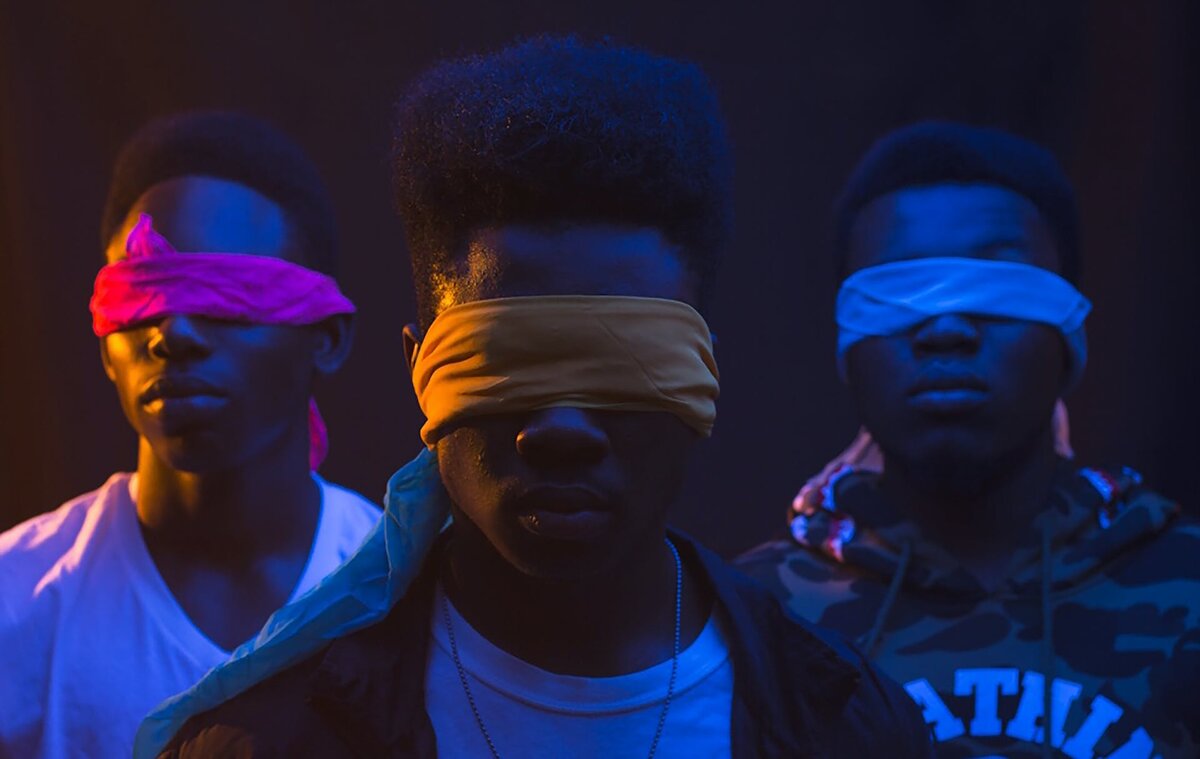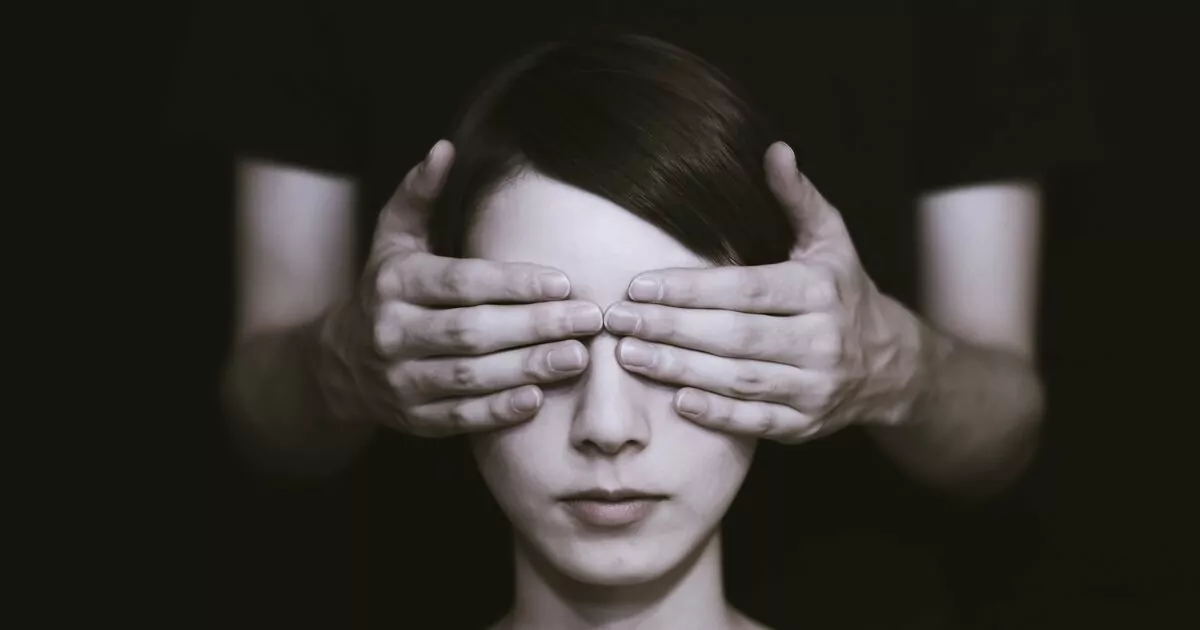Dreams can be mysterious, often reflecting our deepest anxieties and desires. When they involve the loss of a vital sense like sight, it’s normal to wake up feeling unsettled. Experiencing a dream about being blind taps into our innate fear of losing control and facing the unknown. While such dreams might seem alarming, they often carry symbolic messages related to our personal lives. Understanding these nocturnal visions can shed light on hidden aspects of our psyche and guide us toward self-awareness and growth.
On this page:
Unveiling the Meaning Behind Dreaming of Being Blind
Dreams about being blind can stir up a lot of emotions, from fear to confusion. When you dream of losing your sight, it’s not just about the physical inability to see; it often reflects feelings of being cut off from important aspects of your life. This kind of dream can symbolize a lack of direction or uncertainty about where you’re headed.
Sometimes, dreaming of blindness might indicate that there’s something in your waking life that you’re refusing to see or confront. It can be a call to look more closely at a situation or relationship that you might be avoiding. The dream may suggest that you’re overlooking something important or that you’re blind to the truth of a matter.
In other cases, blindness in a dream can represent a fear of the unknown. It might express a feeling of vulnerability or a concern about being unable to control what’s ahead. If you’re navigating a new chapter in your life, such as starting a new job or moving to a different city, it’s not uncommon for these dreams to surface.
Blindness dreams may also reveal a sense of powerlessness. If you’re feeling overwhelmed or as if your autonomy is being compromised in some area of your life, you might experience dreams where you’re unable to see. This can be your mind’s way of telling you to take back control and to start asserting yourself in situations where you might have previously held back.

The context of your blindness dream is key to deciphering its meaning. Consider the emotions you felt during the dream, the events leading up to the blindness, and the reactions of others within the dream. These details can provide valuable insight into what your subconscious mind is trying to communicate and guide you toward addressing the underlying issues in your waking life.
Exploring the Spiritual and Psychological Dimensions of Being Blind in a Dream
Psychologically, dreaming of blindness could indicate a feeling of being disconnected from one’s life or uncertainty about the future. This type of dream may suggest that an individual is overlooking some aspect of their life or choosing to ignore an important issue.
Spiritually, dreams about being blind can be interpreted as a message to turn inward. Such dreams might be prompting a person to rely less on their physical sight and more on their intuition or inner wisdom. Blindness in this context can represent a call to look beyond the superficial and to trust in one’s path even without clear visual confirmation.
From a Jungian perspective, the archetype of the blind seer or prophet, who lacks physical sight but possesses profound inner vision, may come into play. In this sense, a blind dream might signal a transformative phase where insight and foresight are to be gained, not through the eyes, but through deeper understanding and reflection.
In both spiritual and psychological interpretations, the dream of blindness invites an examination of one’s life, encouraging the dreamer to question what they might be ‘blind’ to and to consider alternative ways of perceiving their circumstances. It’s an opportunity to acknowledge the limitations of the conscious mind and to engage more fully with the subconscious, which speaks in the language of dreams and symbols.
Therefore, such dreams could serve as a wake-up call to address unresolved issues, expand one’s perspective, or embark on a journey of self-discovery. It’s about confronting the darkness within to find an inner light that guides the way, even when the outer world seems obscured.
Navigating Common Scenarios of Blindness in Dreams
Often, these dreams place the dreamer in everyday situations, only without the benefit of sight. One might find oneself in familiar settings such as home or work, trying to navigate and perform routine tasks but hindered by a sudden lack of vision. This can lead to feelings of frustration or helplessness as one struggles with the new challenge.
Another common scenario is experiencing blindness in social situations, which can reflect anxiety about being judged or misunderstood by others. The dream may involve trying to interact with friends or family without visual cues, leading to miscommunication or a sense of isolation. Such dreams might mirror real-life concerns about social connections or self-image.
Some people dream of being blind in public spaces, like walking down a street or shopping in a store. These dreams can evoke a sense of vulnerability or fear of the unknown as one tries to move through an unpredictable environment without sight. The dreamer may rely on other senses or the assistance of strangers, which can be disconcerting or comforting, depending on the dream’s context.

In contrast, some dreams involve a more introspective scenario where blindness leads to a heightened awareness of other senses or inner thoughts. This can be a reflective experience, prompting the dreamer to consider aspects of life they might have overlooked.
Regardless of the setting, navigating blindness in dreams often requires the dreamer to adapt, find new ways to ‘see,’ and rely on other strengths. These dream experiences might point to a need for problem-solving or a desire to overcome perceived limitations in one’s waking life.
Dreams of Blindness Across Different Cultures and Beliefs
In many traditional societies, such dreams are believed to convey messages beyond the physical realm. For instance, in some Native American cultures, blindness in dreams can symbolize a loss of personal guidance or a period of transition where old ways must be left behind to make space for new insight.
Similarly, in certain Eastern philosophies, dreaming of being blind may relate to the concept of inner vision. It’s thought that such dreams might represent an invitation to look inward, suggesting that the dreamer is relying too much on external validation instead of trusting their intuition and inner wisdom.
In Western interpretations, particularly within the context of Judeo-Christian beliefs, being blind in a dream might be seen as a call for introspection or a warning against ignoring spiritual truths. The blindness motif in such dreams could prompt individuals to seek clarity and enlightenment within their spiritual practices.
Ancient Greek and Roman cultures often viewed dreams as prophetic. Within these traditions, blindness within a dream could have been interpreted as a metaphor for lack of knowledge or awareness about future events, urging the dreamer to be more attentive to omens or advice from the gods.
While these interpretations can vary widely, they commonly point toward an emphasis on self-reflection, the need for a deeper understanding of life’s path, and the pursuit of knowledge beyond the physical senses. Dreams of blindness frequently encourage the dreamer to consider where they may be metaphorically ‘blind’ in their waking life and to open their mind to the guidance that is being offered from their subconscious or from a higher power.
Interpreting a Dream About Being Blind for Personal Growth
When we dream about losing our sight, it’s not typically about our physical vision; instead, these dreams can point to areas in our life where we feel in the dark or uncertain.
Interpreting these dreams as a metaphor for ‘not seeing’ the truth about a situation or our own behaviors can be enlightening. Perhaps there’s a decision you’ve been avoiding or a reality you’re not facing. Your subconscious might be nudging you to take a closer look at your life. Acknowledging where you might be ‘turning a blind eye’ can open the door to personal development.
Blindness in dreams can also reflect a fear of the unknown or a feeling of impotence in a situation. When you dream about being blind, consider where in your life you feel you lack control or information. By connecting these feelings to your waking life, you can identify the areas where you need to seek more knowledge or assistance.
Such dreams might symbolize a lack of direction or purpose. If you find yourself aimlessly wandering in a dream without sight, it might be time to reevaluate your goals and the path you’re on. Dreams about blindness can prompt you to set clearer intentions for your future and to align your actions with your personal vision.
Your reaction to the blindness in the dream is also telling. If you respond with calm and adapt quickly, it might suggest that you’re ready to face challenges and grow from them. On the other hand, if the dream incites panic, it could mean that you need to build more resilience and confidence in dealing with life’s uncertainties.
Answering Your FAQs on Blindness Dreams
Many people have questions about the unique and often unsettling experience of dreaming about being blind. Let’s address some of the most frequently asked questions to shed light on this topic.
What does it mean if I dream about being blind?
Dreaming about being blind can symbolize a lack of awareness or understanding in some area of your life. It might suggest that you're overlooking something important or that you feel disconnected from your surroundings. However, the meaning can vary greatly depending on the context of the dream.
Is dreaming about blindness common?
Yes, it's a common dream theme. Many individuals experience dreams about losing their sight or encountering blind individuals, which can reflect concerns about losing control or missing out on important visual cues in waking life.
Does dreaming of blindness mean I fear losing my vision?
Not necessarily. While it might be a fear for some, these dreams often relate more to metaphorical blindness or a sense of being in the dark about something rather than a literal fear of losing sight.
Could these dreams be a sign of a health issue?
Dreams about blindness are typically not indicative of physical health problems. They are more often tied to one's emotional and psychological states. However, if you have persistent concerns, it's always a good idea to consult a healthcare professional.
How should I respond to a dream about being blind?
Reflect on areas of your life where you might feel 'blind' or uncertain. Consider whether the dream could be prompting you to pay more attention to something you've been ignoring or to seek clarity in a situation.
Can these dreams impact my waking life?
While the dream itself is a product of your subconscious, your reaction to it can influence your waking life. It may encourage you to address issues you're avoiding or to approach situations with a new perspective.
Understanding the nuances of dreams about blindness can be complex, but delving into these questions provides a starting point for interpretation and personal insight.
Integrating Dream Insights into Daily Life
Dreams about being blind can be unsettling, but they often carry important messages about our subconscious needs and fears. By reflecting on these dreams and understanding their significance, we can gain valuable insights into our daily lives. It’s not about taking these dreams literally, but rather using them as a tool for self-reflection and personal development. Consider maintaining a dream journal to track patterns and themes that arise. If a particular insight from a blindness dream resonates with you, think about how it might be relevant to your waking life. Are there areas where you feel you’re metaphorically ‘blind’? Addressing these aspects can lead to personal growth and a better understanding of oneself. Remember, integrating the wisdom of our dreams into our daily life can be a powerful step toward greater self-awareness and emotional well-being.
